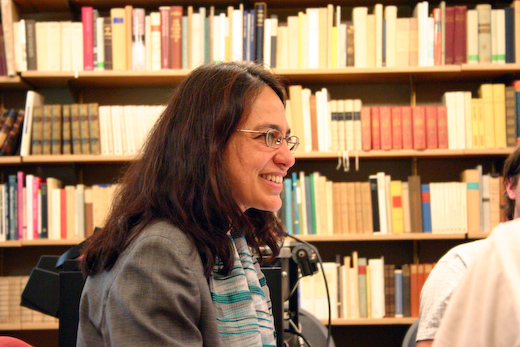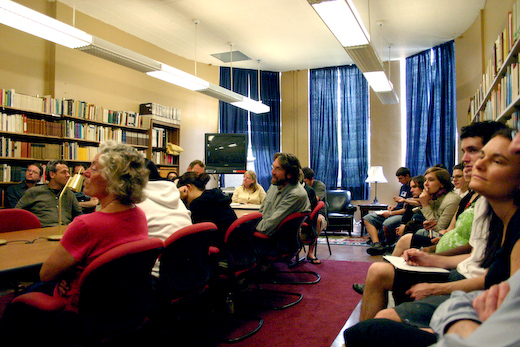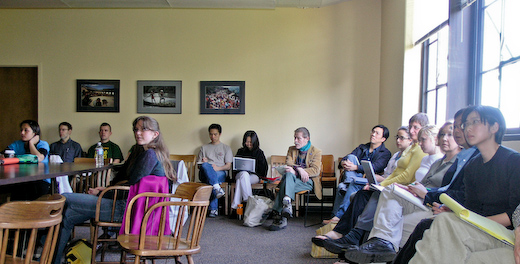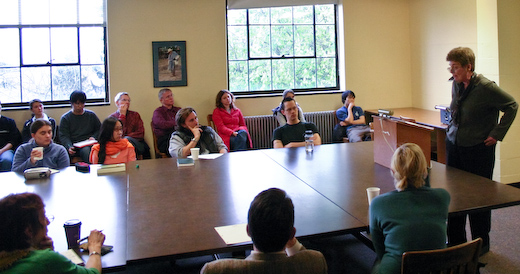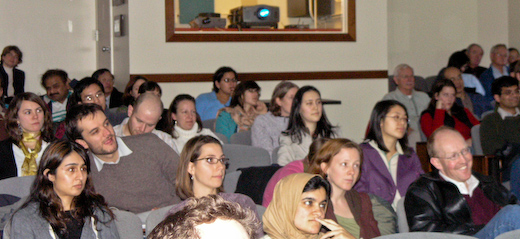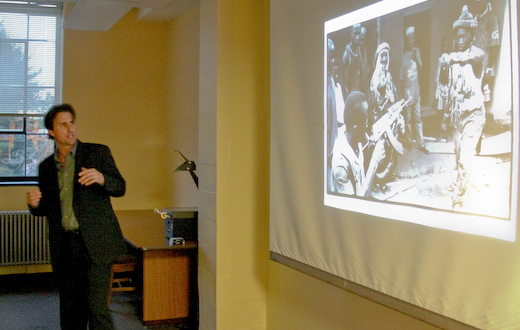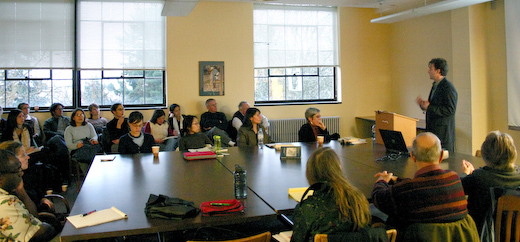In this lecture, William Mazzarella will consider recent controversies over film censorship in India from the perspective of the category of "obscenity." The talk will address two goals: to move beyond the standard understanding of censorship battles as an opposition between "progressives" and "reactionaries" and to mine the Indian legal understanding of obscenity for how it might help us think about the politics of mainstream publicity, beyond what is conventionally categorized as "obscene."
William Mazzarella has taught in the Department of Anthropology at the University of Chicago since 2001. He holds a Ph.D. from the University of California, Berkeley. Mazzarella is the author of Shoveling Smoke: Advertising and Globalization in Contemporary India (2003). For the last several years, he has been researching and writing on cultural regulation, censorship, affect, and what he calls "the politics of immediation."
e-Flyer (PDF)
William Mazzarella has taught in the Department of Anthropology at the University of Chicago since 2001. He holds a Ph.D. from the University of California, Berkeley. Mazzarella is the author of Shoveling Smoke: Advertising and Globalization in Contemporary India (2003). For the last several years, he has been researching and writing on cultural regulation, censorship, affect, and what he calls "the politics of immediation."
e-Flyer (PDF)
